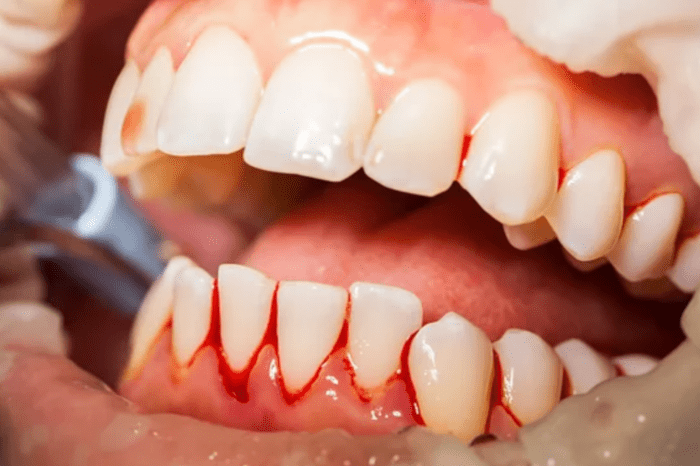Periodontal disease (or gum disease) is a condition that affects the gums. If you notice swelling or redness in your gums, you may be developing the early stages of this disease. In the early stages, you and your dentist can work together to reverse the condition. However, if gum disease advances, you will need constant treatment.
In its later stages, gum disease can cause gum recession, bone deterioration, or tooth loss. Typically, the main contributor to gum disease is plaque. When it builds near and underneath the gum line, the soft tissues become irritated. Over time, the gums will begin to recede, leaving more room for plaque to build. Unfortunately, gum recession affects the teeth. This is because the gums help keep the teeth steady and stable. When the gums recede, the teeth no longer have a steady support.
Advanced gum disease can cause a number of significant issues that affect your overall and oral health.

Diminished Immune System
While some people may not make the connection, gum disease is a constant infection of the gums. Any infection—big or small—has an impact on your body and immune system. It is the job of the immune system to fight infection and illnesses. Additionally, your immune system helps you recover from surgeries or injuries. A healthy immune system means that you are less likely to get sick. If you do get sick, your immune system will help you bounce back faster.
However, your immune system cannot constantly fight off infections. At some point, your immune system’s ability to keep you healthy diminishes. If you have gum disease, your body is constantly fighting the infection in your mouth. Over time, your immune system can stop working as efficiently. As a result, you are more likely to get sick or have a difficult time recovering from illnesses. People with gum disease have a harder time recovering from surgeries as well.
Heart Conditions
According to experts, there is a correlation between people who have gum disease and people who have heart disease. This means that if you have gum disease, you are at a higher risk of developing heart disease. One reason behind this has to do with plaque. Plaque is a type of harmful bacteria that resides in your mouth, sticking to the surfaces of your teeth and gums. Without proper removal, you run the risk of developing gum disease. The same plaque that builds in your mouth can also build in your arteries.
Typically, a buildup of plaque in the arteries causes heart disease. It reduces the efficiency of your heart to pump blood. Additionally, increased plaque means that your heart has to work harder to pump blood through your body. Over time, this creates a lot of stress on your heart. This can increase your risk of a heart attack or stroke.
Tooth Loss
Because plaque causes the gums to recede, your teeth no longer have the required stability. This can cause them to loosen and, ultimately, fall out. People with gum disease are at a much higher risk of losing their teeth.
